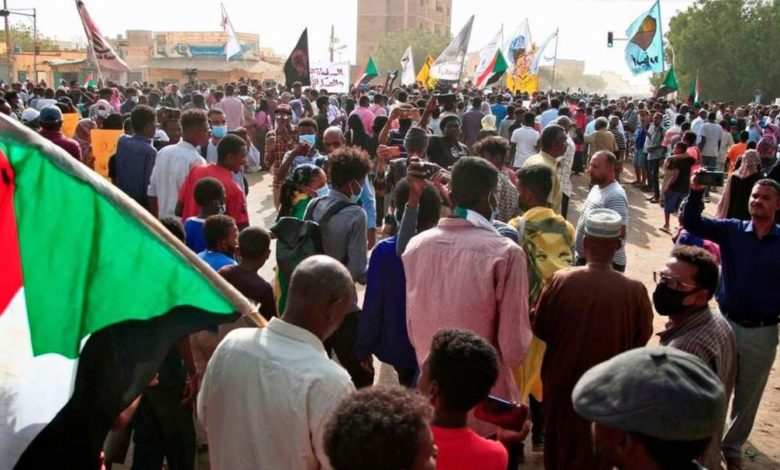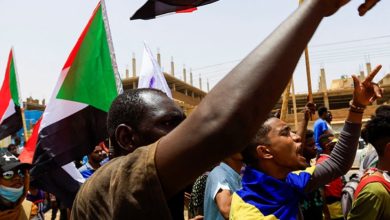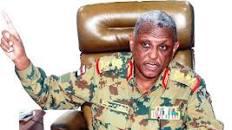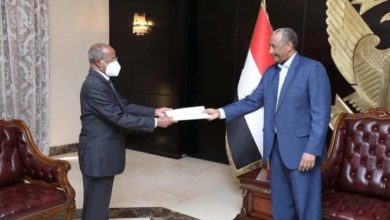Sudan’s revolution a ‘failure’, experts say

press/slma
The revolution was hijacked by the military which deposed al-Bashir.
Sudan’s civilian-led revolution three years ago, in which long-serving leader Omar al-Bashir’s 25-year regime was toppled, has yet to help the country’s democracy, experts have said.
The revolution, which was a culmination of months of protests from a public angered by rising costs of living, was hijacked by the military which deposed al-Bashir on April 6, 2019 but retained control of the government.
Experts gathered virtually on Thursday said the country’s democracy is worse and its other pillars like human rights, social justice and economy are just as bad.
In a Twitter Space discussion organised by Nation.Africa on Thursday, international relations, politics, and human rights experts explained why the Sudanese are still far from living in a democratic state.
Kholood Khair, a Sudanese national and the managing partner at Insight Strategy Partners, said, “The situation in Sudan is currently very chaotic, because for the first time in Sudan’s history, we have both a coup, trying to consolidate, and a revolution restarting.”
“The pro-democracy movement really has a lot to for fight here; it’s not just the domestic battle it’s a regional battles and international battle,” she added.
With a debt of $56 billion, Sudan was literally on its knees when Bashir’s regime fell. And now the International Monetary Fund (IMF)’s intention to relieve Khartoum of the heavy debt burden might never be after the military regime took over again.
Most of the conditions imposed on Sudan during Bashir times have not been re-imposed, but lenders and other donors have suspended support they were channelling to Sudan and demanding a return to civilian government.
Sudan’s military ran the show until August 2019 before agreeing to a power-sharing arrangement with representatives of civilian movements that had helped push al-Bashir out.
But that transitional government was roiled on October 25 last year after Prime Minister Abdalla Hamdok was toppled and his cabinet detained.
The Junta’s leader, Abdel Fattah al-Burhan, argued he was saving the transition from a wrangling government. He has failed to form another transitional administration which has stalled the programme that would have seen the country hold its first ever free and fair election in three decades.
Politically, Ms Khair said, there is total disarray and division, as different factions push and pull for different things, and some militia and criminal organisations have cropped up, taking advantage of the situation to escalate conflict and lawlessness.
Don Deya, a human rights activist and Pan African Lawyers Union Chief Executive, said, “It’s a real fight for their lives that the people of Sudan are engaged in, and it would be keen to see what we, the rest of Africa, especially fellow people, fellow citizens, can do to support them at this time.”
“The IGAD, African Union, and the rest of the international community seem unable, incapable to step in and help the people of Sudan,” he added.
The civilian movements and the military have failed to agree as the former demand no role for the military in government.
But the experts also argued that the military has reversed some of Sudan’s progress in international cooperation.
The civilian leadership was ready to hand over Bashir to the International Criminal Court to face trials for crimes against humanity and war crimes, for which he was indicted in 2007.
But the military has now cooled over it in what also looks like saving themselves from the skeletons of the Darfur war in which more than 300,000 people were killed by militia supported by Bashir.
Macharia Munene, a professor of history and international relations, said that Sudan’s revolution failed because of the involvement of the military.
“Sudan’s new dawn has not been realised, in part because there was hijacking by the military of a movement that was to restore sanity, peace and the freedoms of the peoples,” Prof Munene said.
Dr Hassan Khannenje, Director of Horn International Institute of Strategic Studies, said, “What is happening in Sudan is a picture of a growing trend in the entire continent, and the West’s, as well as the international community’s, silence on the emerging coups has emboldened village tyrants as we see in the region.”
According to Ms Khair, Sudan current government is a reflection of Bashir’s regime and not so much might change for Sudanese.
Several countries, especially western European and American powers, have instituted numerous sanctions against Sudan, but experts say they might disproportionately affect the poor and citizens who have nothing to do with the junta’s misdeeds or the country’s instability.
“As much as the West is not interested, or appears not to be interested in what is happening in Sudan, then that’s an opportunity for Russia and China to advance their interests in the country,” Prof Munene said.
With Sudan’s increasing cooperation with China and Russia, the experts warned that the authoritarian regime may only be getting stronger with little hope of a democratically elected government in the country any time soon.
Source: The East African





